Exhibition remembers Northern Ireland Troubles
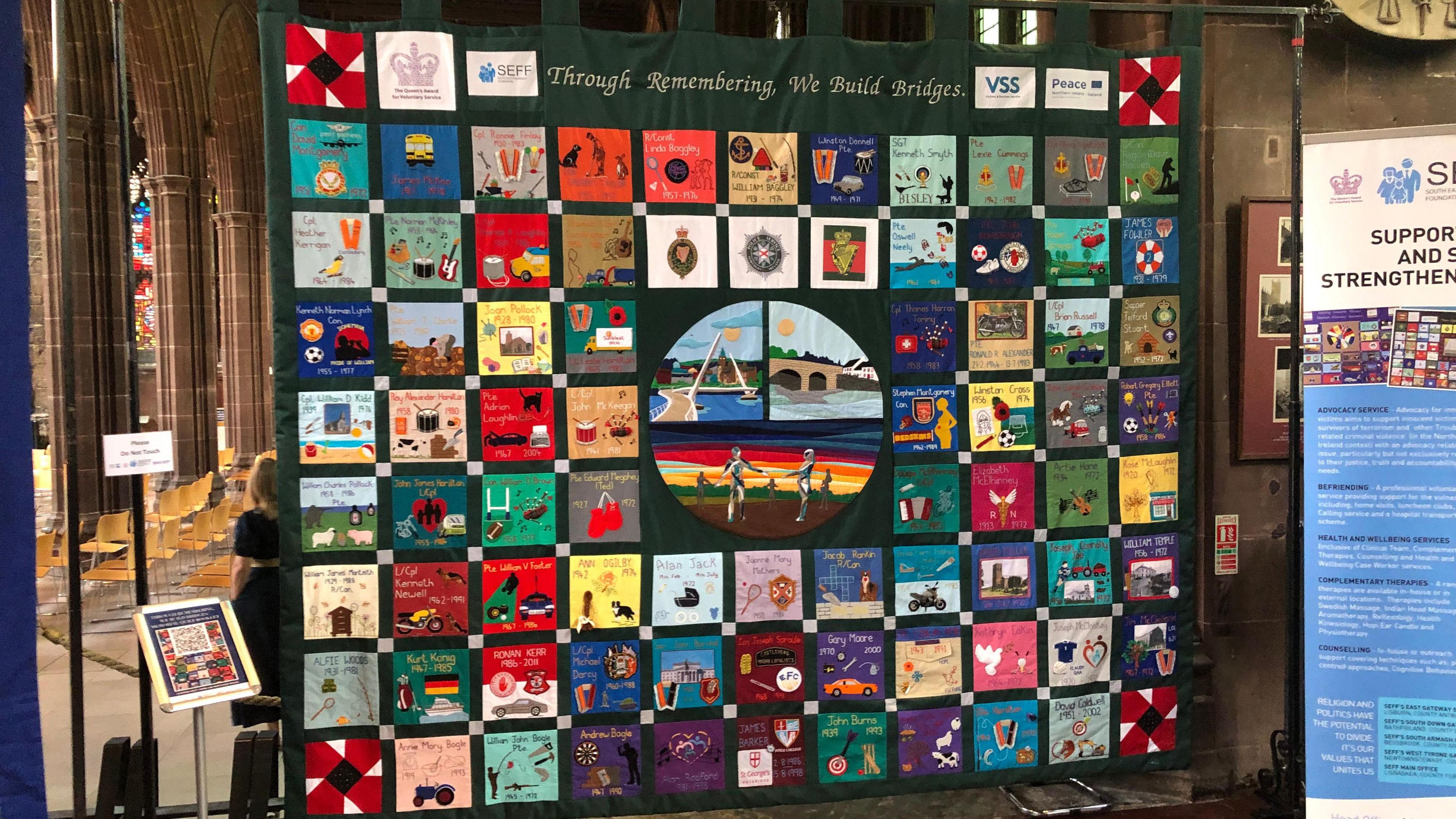
The exhibition aims to bring together people from all backgrounds and communities
- Published
A service was held in Manchester to bring together people affected by the Troubles in Northern Ireland.
The service at Manchester Cathedral came during an ongoing exhibition of seven memorial quilts that remember up to 500 men, women and children killed.
Kenny Donaldson, director at South East Fermanagh Foundation (SEFF) said many families the organisation has supported over the years were represented on the Terrorism Knows No Borders quilt.
Among those remembered on it are 12 victims of the M62 coach bombing in West Yorkshire in 1974.
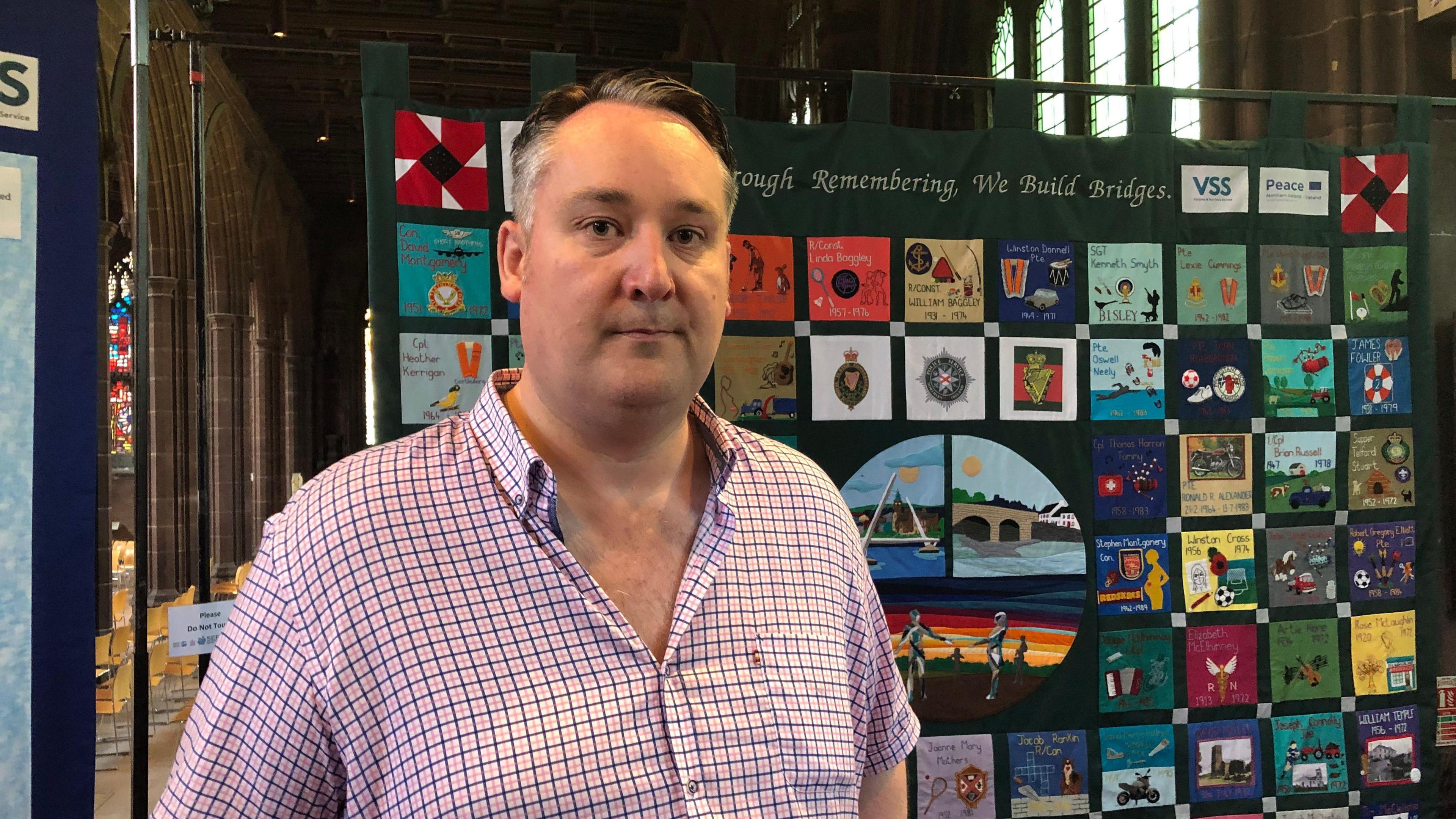
Kenny Donaldson says SEFF wants the legacy of innocent people and how they show to live represented by the memorial quilts
Mr Donaldson said: "Each of the quilt brand titles reflect core messages we wish to represent through the lives being remembered and also honoured.
"The basis for the quilts can be found in comments made by many families: 'No-one remembers us', 'No-one cares', 'We are forgotten'.
"The SEFF family always remembers, and will continue to do so in the months and years ahead, thus ensuring that the legacy of innocents and the way in which they chose to live their lives is represented."
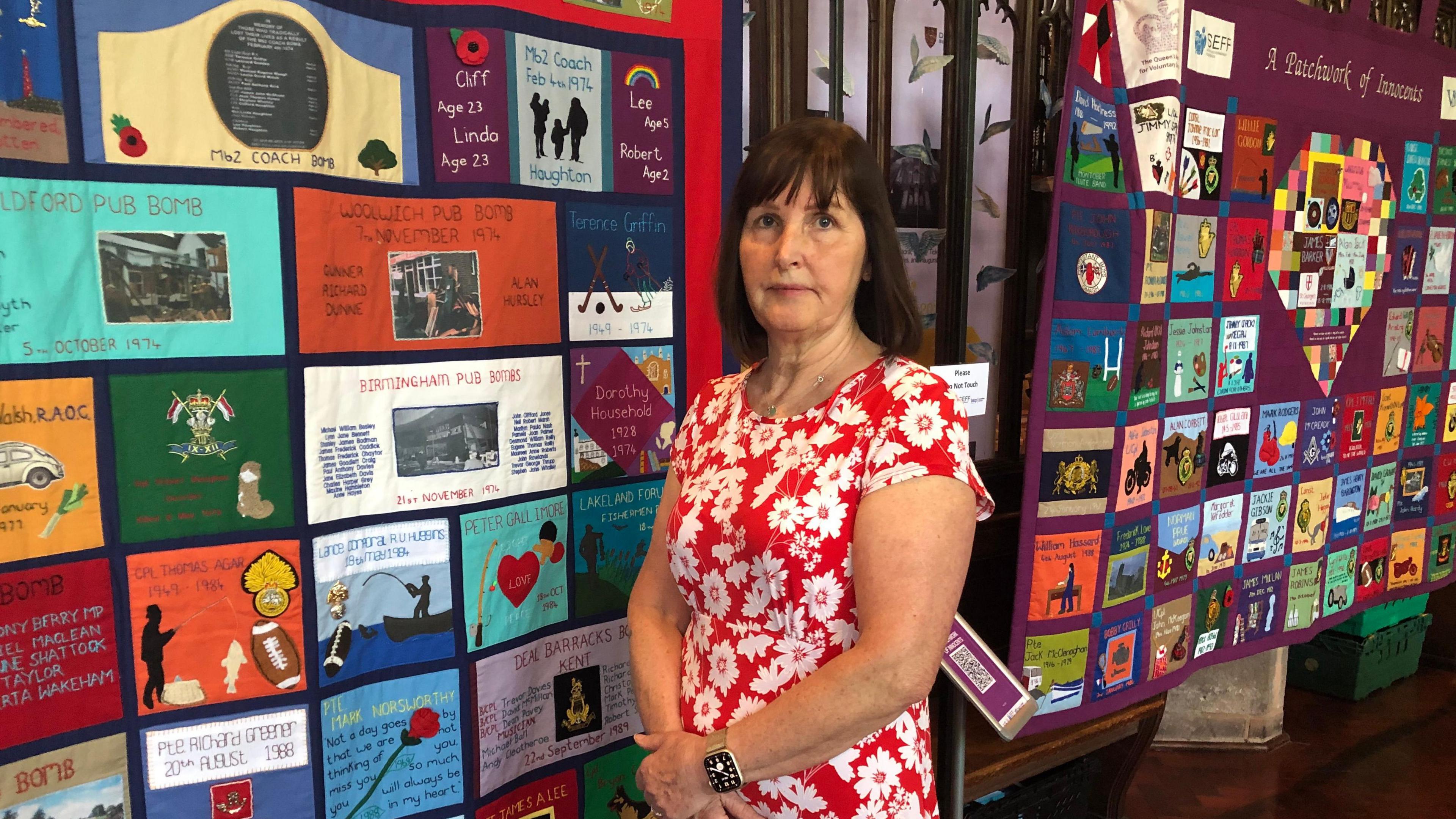
Christine's husband Robert was killed by a bomb while off duty and on a fishing trip
The conflict in Northern Ireland lasted almost 30 years from 1969 and cost the lives of more than 3,500 people.
Christian Huggins is from Manchester. Her husband Robert was a soldier with the Fusiliers, and was killed in Enniskillen in 1984 when a bomb exploded during a fishing festival.
Ms Huggins said her husband "lived for his family".
She urged people, especially young people, to visit the exhibition and learn about the Troubles.
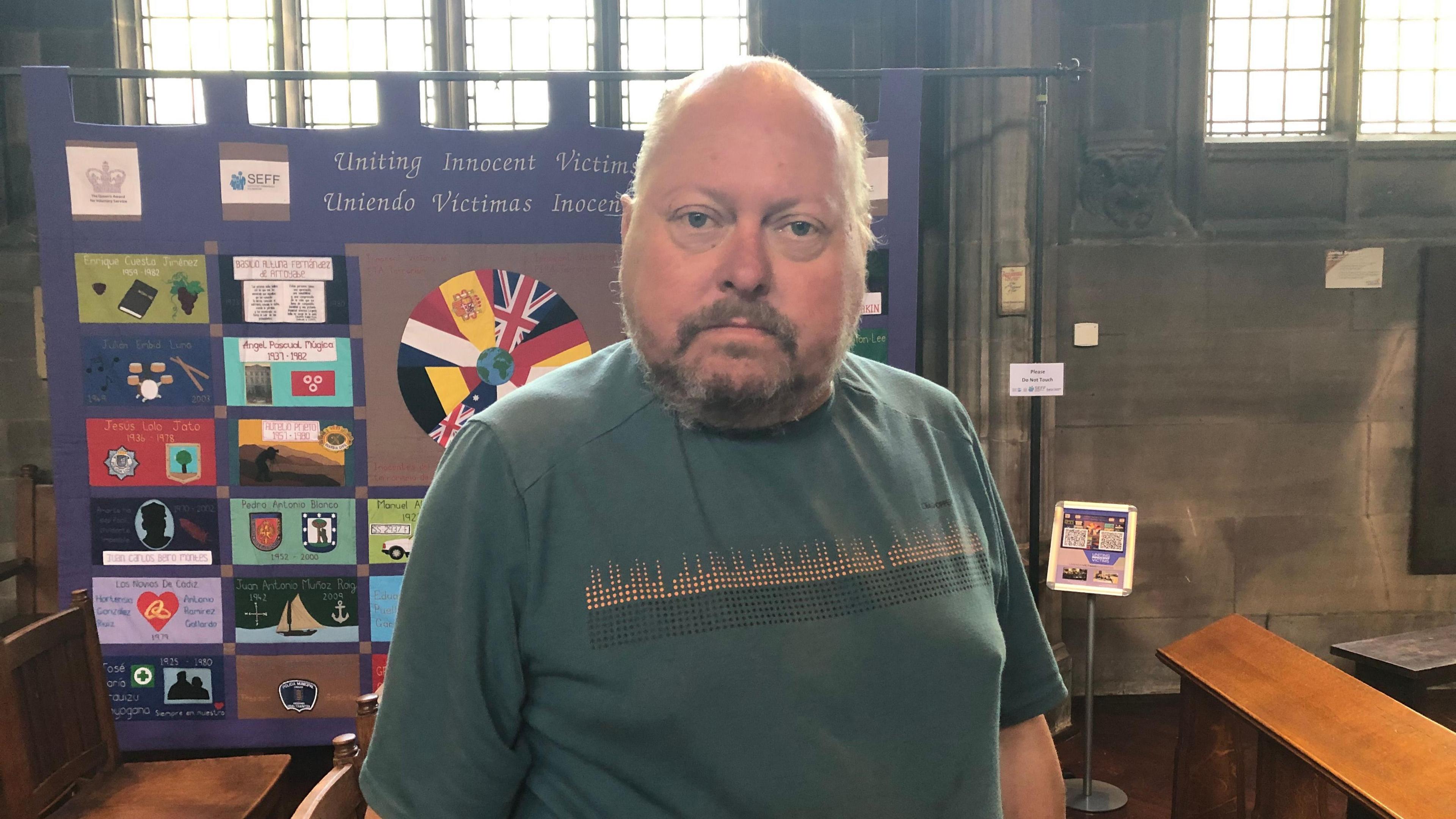
Neil Tattersall was working at the Arndale Centre in Manchester when a bomb exploded
Neil Tattersall was the most seriously injured survivor of a 1992 bomb attack near the Arndale Centre in Manchester.
Mr Tattersall, who was about to become a father at the time, had taken a new job at the shopping centre when it was evacuated following a bomb threat.
He thought the threat was a hoax and "stood there having a laugh".
He was standing on a wall and the bomb exploded as he stepped away.
"The wall was destroyed. The bomb was behind the wall.
"It was like a massive thud in my back as if somebody had punched me."
He was left with shrapnel in his back.
He said, he thinks people should "share their experience" with others in similar situations so they feel "they are not on their own".
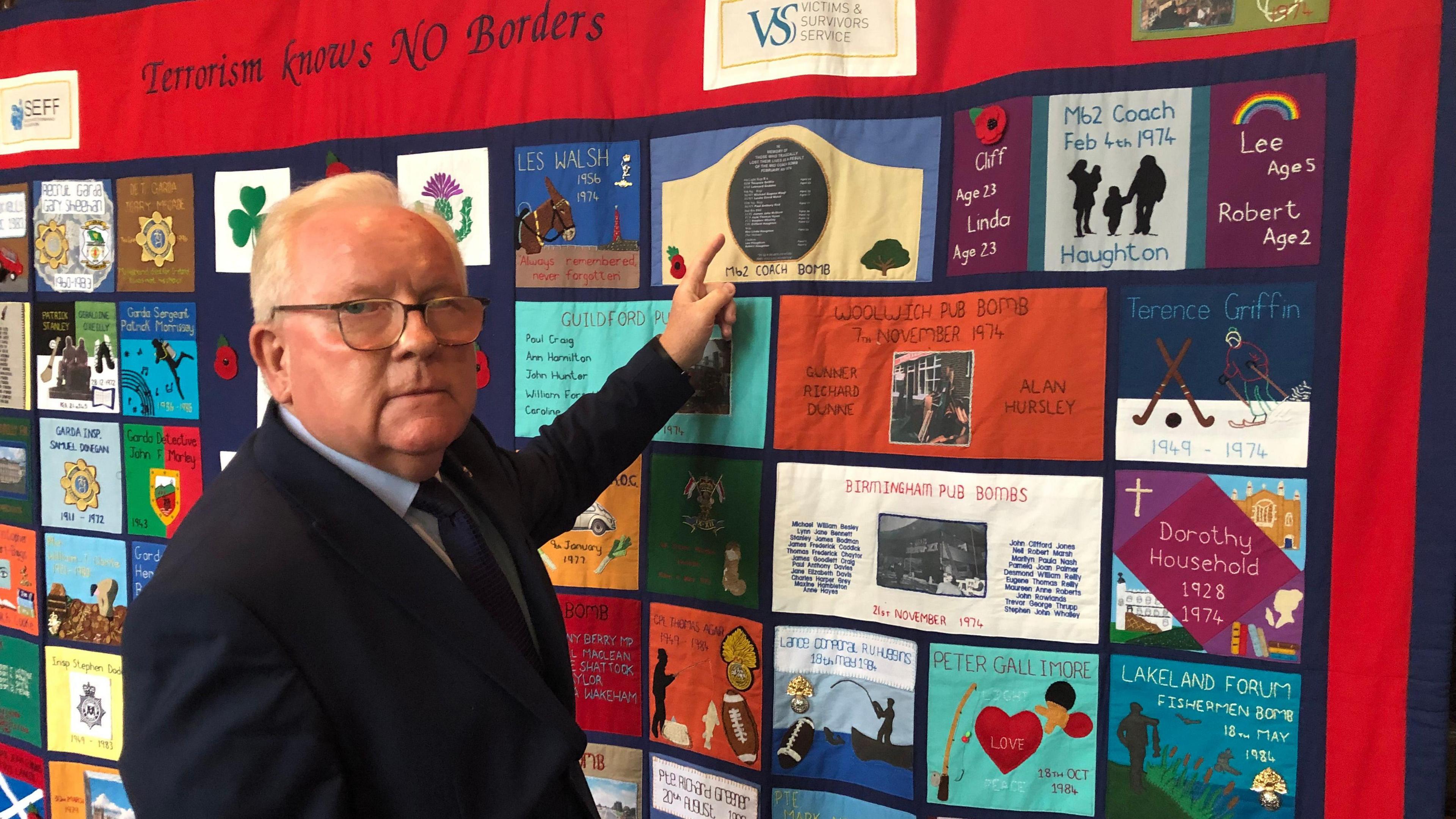
Tommy Judge survived a bus bomb on the M62 while on the way back from an 18th birthday party
In 1974, Tommy Judge was a soldier at the Catterick garrison in North Yorkshire.
The then-17-year-old was returning from an 18th birthday party in Manchester when the coach he was on exploded.
Twelve people were killed including two young, children aged two and five, and their parents.
Mr Judge said "anything that keeps their names in the public domain has got to be appreciated".
He added: "I am grateful for exhibitions like this."